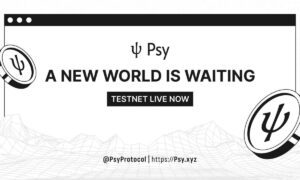Introduction
Norway has become one of the leading countries in Northern Europe when it comes to cryptocurrency. In recent years, more Norwegians have started to buy, hold, and use digital assets. Reports show that crypto in Norway is moving from a niche trend to a mainstream financial tool. Strong internet infrastructure, high digital literacy, and trust in technology are key factors driving this growth.
Many investors want to understand not only how to invest in crypto in Norway, but also how to do it safely and with minimal cost. Here, platforms like Fondet Ykaro play an important role. They help compare exchanges, calculate hidden fees, and offer clear statistics about the Norwegian market. This makes it easier for beginners and professionals to make smart choices.
In this article, we will explore the trends, data, and opportunities connected with blockchain in Norway. We will also take a closer look at the regulatory environment, market infrastructure, and future outlook. From understanding the most popular Norwegian crypto exchanges to analyzing adoption rates, this guide aims to give a clear and practical overview of the current landscape.
Global Context of Crypto Adoption
To understand the position of crypto in Norway, it is important to look at the global picture first. Around the world, digital assets are no longer seen as a small experiment. Countries in Asia, North America, and Europe are developing regulations, exchanges, and investment tools that make cryptocurrency more accessible than ever.
According to global adoption indexes, Norway ranks high compared to its Nordic neighbors. While many countries still struggle with unclear rules, Norwegians benefit from a transparent system that allows them to invest, trade, and pay with crypto. This makes Norway an attractive location for both local investors and international companies interested in blockchain in Norway.
Here is a simple comparison of adoption trends:
| Region | Adoption Level | Main Focus |
| Asia | High | Payments and DeFi |
| North America | Medium to High | Investment and ETFs |
| Europe | Medium | Regulation and security |
| Norway | Above Nordic average | Trading and long-term holding |
This global view shows why cryptocurrency Norway is gaining attention. The country is not just following international trends, but actively shaping them. With clear tax policies, high trust in financial institutions, and services like Fondet Ykaro supporting transparency, Norway is setting an example for other European markets.
Historical Background in Norway
The journey of crypto in Norway started slowly but gained speed over the past decade. Early interest appeared around 2013, when Bitcoin became known in global media. At first, only a small group of tech enthusiasts and investors experimented with digital coins. However, after 2017, when Bitcoin prices surged worldwide, many Norwegians started to notice the potential of cryptocurrency.
From 2018 to 2020, the market faced ups and downs. Despite global volatility, the Norwegian community grew stronger. Local fintech companies began exploring blockchain in Norway, and financial authorities started publishing guidelines on taxation and regulation. This gave more clarity for investors and made the environment safer.
Between 2021 and 2023, adoption expanded further. Surveys by EY and K33 showed a rising share of Norwegians holding digital assets. Crypto exchanges became easier to access, and people could buy coins directly with NOK. This period also saw the birth of tools like Fondet Ykaro, which helped users compare fees, understand regulations, and calculate returns.
By 2025, cryptocurrency Norway is no longer a niche product. It has become part of the wider financial ecosystem, with mainstream investors, businesses, and regulators actively involved. This history shows a clear pattern: steady growth, supported by transparency and trust.
- 2013–2016: Early stage, limited awareness.
- 2017–2020: Market volatility but rising interest.
- 2021–2023: Clearer rules, growing adoption.
- 2024–2025: Mainstream acceptance and expansion.
Current Adoption Levels
Today, Norway stands out as one of the most active markets for cryptocurrency in Northern Europe. Surveys show that more than 10% of the adult population owns digital assets. This is a higher share than in Sweden, Denmark, or Finland, making crypto in Norway a leading example of digital finance adoption in the region.
The most popular coins are Bitcoin and Ethereum, but there is also growing interest in altcoins and stablecoins. Younger Norwegians, especially those between 20 and 35 years old, are the largest group of investors. They use Norwegian crypto exchanges for both short-term trading and long-term savings. Older groups are more cautious, but even among them, the adoption rate is rising each year.
Different factors influence the level of adoption:
- Accessibility: Easy integration with Norwegian banks makes deposits and withdrawals fast.
- Trust: Strong regulation builds confidence in local exchanges.
- Awareness: Media coverage and education programs increase knowledge about blockchain in Norway.
The following table highlights current adoption compared to other Nordic countries:
| Country | % of Population Owning Crypto | Main Usage |
| Norway | 10–11% | Trading, long-term investment |
| Sweden | 7–8% | Short-term speculation |
| Denmark | 6–7% | Limited adoption |
| Finland | 5–6% | Small niche investors |
Platforms like Fondet Ykaro play an essential role in supporting this adoption. By offering tools to compare fees, evaluate exchanges, and track real costs in NOK, they make the market more transparent and user-friendly. This helps both new investors and experienced traders expand their activity with confidence.
Use Cases and Real-World Applications
The growth of cryptocurrency in Norway is not only about buying and holding coins. More people and businesses are finding practical ways to use digital assets in everyday life. This shows that crypto Norway is moving beyond speculation and becoming part of real economic activity.
Here are the main use cases today:
- Investment: Many Norwegians buy Bitcoin or Ethereum as a long-term store of value. They see it as a digital alternative to gold and use it for savings or portfolio diversification.
- Trading: Active traders use Norwegian crypto exchanges to profit from short-term price changes. The availability of NOK pairs makes trading easier and cheaper.
- Payments: Some e-commerce platforms and fintech apps in Norway now accept crypto for payments. While still limited, this trend is growing as blockchain technology becomes more trusted.
- DeFi and Web3: Younger investors are exploring decentralized finance and applications built on smart contracts. Norway has a rising number of developers experimenting with blockchain in Norway projects.
Examples show that businesses are slowly opening to crypto as well. Some companies use it for cross-border payments, while freelancers in tech and design sometimes prefer to be paid in digital assets. These steps may seem small, but they signal a wider change in financial culture.
Tools like Fondet Ykaro help investors and businesses evaluate which exchanges or payment options are the most efficient. By comparing costs and features, users can avoid hidden fees and make smarter decisions about when and how to use crypto in practice.
Regulatory and Tax Landscape
The success of cryptocurrency in Norway is strongly linked to a clear legal framework. Unlike in some countries where rules are vague, Norwegian authorities have taken steps to regulate the market. This helps investors feel more secure and encourages businesses to explore blockchain in Norway.
The main financial regulator, Finanstilsynet, oversees the sector. It sets requirements for Norwegian crypto exchanges to ensure they follow anti-money laundering (AML) and know-your-customer (KYC) rules. These steps protect both investors and the wider economy. While regulation may feel strict, it also builds trust and attracts institutional players.
Taxation is another important part of the picture. In Norway, profits from investing in crypto are treated like income from stocks or other financial assets. This means that individuals must report gains, and losses can also be deducted. Although this adds paperwork, it also signals that the government treats digital assets as part of the mainstream financial system.
Key elements of the Norwegian approach include:
- Transparency: Clear guidance on how to declare crypto income.
- Protection: Strict standards for exchanges to protect customer funds.
- Integration: Tax rules that align crypto with other investment assets.
Platforms like Fondet Ykaro help users understand how regulations affect real costs. By showing not only trading fees but also potential tax impacts, such tools make compliance easier. For many investors, this combination of clarity and support is what makes crypto Norway attractive compared to less regulated markets.
Market Infrastructure and Exchanges
For cryptocurrency in Norway to grow, strong infrastructure is essential. Today, investors have access to both international platforms and local Norwegian crypto exchanges. This balance gives users flexibility while ensuring compliance with national rules.
Local exchanges allow direct trading with Norwegian kroner (NOK), making it simple for people to invest in crypto in Norway without needing foreign accounts. They also integrate with major Norwegian banks, which reduces transaction times and builds trust. At the same time, global exchanges offer more trading pairs, higher liquidity, and advanced tools for experienced traders.
The market infrastructure includes:
- Exchanges: Both domestic and international platforms available for Norwegian users.
- Banks: Increasing cooperation with crypto services, especially for payments and transfers.
- Payment apps: Some fintech startups now allow buying and selling digital assets directly from mobile wallets.
- Security providers: Custody solutions and cold storage services are developing to meet demand.
Here is a simple overview:
| Type | Examples | Main Advantages |
| Local Exchanges | Norwegian-based platforms | Bank integration, NOK deposits, local support |
| International Exchanges | Binance, Coinbase, Kraken | High liquidity, many trading pairs |
| Fintech Apps | Mobile wallets, payment services | Convenience, everyday use |
Choosing the right exchange depends on personal needs. Long-term investors may prefer security and local support, while active traders often choose platforms with low spreads and fast execution. To simplify this decision, Fondet Ykaro offers comparisons of fees, banking options, and trading conditions. This helps Norwegian investors save money and reduce risks when entering the market.
Adoption Drivers and Barriers
The rise of cryptocurrency in Norway is shaped by several powerful forces. On one side, there are strong drivers that push adoption forward. On the other, certain barriers still limit wider use. Understanding both sides helps explain why crypto Norway is growing steadily, but not without challenges.
Main Drivers
- Digital culture: Norway has one of the highest internet usage rates in Europe. This creates a strong foundation for blockchain in Norway and crypto adoption.
- Financial stability: High trust in banks and institutions means people are more open to trying regulated crypto services.
- Younger demographics: A large share of crypto users are under 35, and they are eager to explore investment and new technology.
- Transparency: Clear tax rules make it easier to invest in crypto in Norway without fear of breaking the law.
Main Barriers
- Volatility: Sharp price changes make some people cautious about using crypto as savings.
- Security risks: Hacks and scams, even abroad, affect public perception in Norway.
- Knowledge gap: Many still lack a deep understanding of how Norwegian crypto exchanges work.
- Limited payment use: While adoption is growing, crypto is still not widely accepted in everyday shopping.
Despite these barriers, the balance is moving in favor of adoption. Education and transparency remain the key tools for building trust. This is where Fondet Ykaro contributes by offering clear comparisons and practical insights. By showing real costs and helping investors make smarter choices, it reduces uncertainty and supports sustainable growth of the market.
Statistical Breakdown
Numbers give the clearest picture of how cryptocurrency in Norway is developing. Surveys and market studies show that ownership, transaction volumes, and preferences among investors are steadily rising. Compared to 2020, adoption levels in 2025 are almost double, proving that crypto Norway is now part of the mainstream economy.
According to recent reports:
- More than 10–11% of Norwegians now own some form of cryptocurrency.
- Bitcoin remains the most popular asset, followed by Ethereum.
- Altcoins and stablecoins are gaining attention, especially among younger investors.
- Trading volumes in NOK pairs have increased sharply over the past two years.
The table below highlights key statistics:
| Category | Norway (2025) | Nordic Average |
| Population owning crypto | 10–11% | 6–7% |
| Top assets | Bitcoin, Ethereum | Bitcoin |
| Average investment size | €2,000–€3,000 | €1,200–€1,800 |
| Main exchange activity | Trading + long-term holding | Mostly trading |
Demographic data also show interesting patterns. Young adults under 35 are the most active group, often using Norwegian crypto exchanges for both trading and saving. Meanwhile, professionals in their 40s and 50s are entering the market as long-term investors. Regional data suggest that urban centers like Oslo and Bergen lead adoption, while rural areas show slower but steady growth.
These figures confirm that Norway is ahead of its neighbors in digital asset ownership. Platforms like Fondet Ykaro support this progress by making statistics and fee calculations more transparent, helping investors of all ages understand the real cost of participation.
Future Outlook
The future of cryptocurrency in Norway looks promising. Analysts expect ownership levels to rise further as digital assets become a normal part of financial planning. Younger generations, who are already active in crypto Norway, will likely increase their investments as their income grows. At the same time, older investors are beginning to explore crypto as an alternative way to diversify portfolios.
One major driver will be European regulation. The new MiCA framework (Markets in Crypto-Assets) is designed to harmonize rules across EU countries. Even though Norway is not in the EU, it often aligns with European standards. This means stricter but clearer rules that will help Norwegian crypto exchanges grow with more security and investor trust.
Another trend is the expansion of blockchain in Norway beyond trading. Businesses are testing crypto payments, supply chain tracking, and decentralized finance tools. Universities and research centers are also exploring blockchain applications, which may create new opportunities for startups and investors.
Key areas to watch in the next five years:
- Institutional investment: More funds and banks entering the crypto space.
- Everyday payments: Wider acceptance of crypto for e-commerce and services.
- Innovation: Growth of Web3 and blockchain-based projects in Norway.
With tools like Fondet Ykaro providing data and comparisons, investors will be better prepared to navigate these changes. Transparency, strong regulation, and a digitally skilled population suggest that Norway will remain a leader in crypto adoption in Northern Europe.
Conclusion
Norway has built one of the most advanced crypto markets in the Nordic region. Clear regulation, strong digital culture, and high trust in financial systems have helped cryptocurrency in Norway move from a niche trend to a mainstream part of the economy. More than one in ten Norwegians now own digital assets, and this number is expected to grow in the coming years.
The story of crypto Norway shows a balance between innovation and safety. On one hand, investors enjoy access to local and international Norwegian crypto exchanges with good liquidity and support for NOK. On the other hand, regulators ensure transparency, making the market more stable and attractive for long-term growth. Businesses and developers are also exploring blockchain in Norway, expanding its use beyond trading.
For individuals, the opportunity to invest in crypto in Norway has never been greater. However, success depends on making informed choices and understanding real costs. This is where Fondet Ykaro provides value — helping compare platforms, track hidden fees, and simplify decision-making. With tools like this, both beginners and professionals can enter the market with confidence.
In short, Norway is not just following global trends — it is shaping them. With its mix of innovation, regulation, and transparency, the country is set to remain a leader in cryptocurrency adoption in the years to come.



































